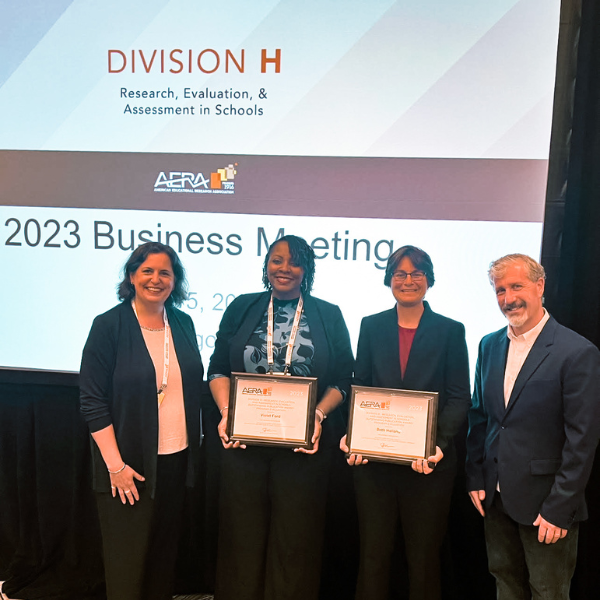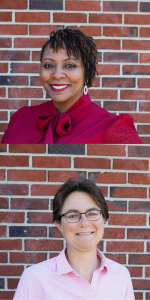
For decades, quantitative, randomized control trials (RCTs) have been considered the gold standard of education research. The What Works Clearinghouse even prioritizes studies that randomly assign participants to conditions and show statistical significance. However, at last month’s American Educational Research Association’s (AERA) Annual Meeting in Chicago, we sought out sessions from a growing cadre of education researchers who have started advocating for more mixed-methods, iterative, agile, and equity-centered approaches that produce actionable evidence to inform the field. As we compared notes, we realized that beyond the overarching theme, Interrogating Consequential Education Research in Pursuit of Truth, a more salient conversation about the future of research and measurement was emerging. With it came a call to action to push the boundaries of traditional ideas, methods, and research designs; to engage with communities in the design of studies; and to identify new modes for communicating findings.
Call to Action #1: Equitably Communicate to the Field
Across sessions, scholars asserted that we are at a critical juncture in education, making it imperative that we share research with the sector in a way that is equitable, engaging, and effective and that addresses the urgent needs of students. We must think critically about the future of education while remaining focused on the critical equity challenges facing students today, making it incumbent upon researchers to share relevant findings and implications in a way that can immediately impact students.
As James L. Moore from the National Science Foundation argued, a critical challenge is to ensure that people can equitably access the research and findings that may create a disruptive effect. This implies real-time dissemination and the necessity to scaffold the interpretation of studies. Moving forward, researchers need to interrogate the paradox of using comparative groups and contemplate which variables or conditions might be better predictors of effect. They also must assume responsibility for translating these findings in a comprehensible manner.
Call to Action #2: Break Down Silos
Current president of the Spencer Foundation and past AERA president, Na’ilah Suad Nasir, echoed this sentiment, stating that education research must recognize the limitations of how we have previously worked, including doing away with tendencies to operate in silos and remove vastly unjust practices. She argued that research must be approached with an asset-based mindset and intentionality for how measurement can be used in practice. Susanna Loeb from Stanford and Andrew Ho from Harvard elaborated on this concept and discussed the need to break down silos between datasets and look at trends over time as well as across concepts. They challenged us to consider the observations that may be possible if we stop examining datasets in isolation and focusing on single measures as an indicator of change.
Presenters on inclusive research design and equity-based Research-Practice Partnerships reinforced our belief that measurement needs to value the diverse expertise of participants and engage them in long-term collaboration with the study. This occurs by focusing on relationship-building, engaging in meaningful joint work, shifting the balance of power away from researchers, and valuing iterative development as much as final evaluation. In a session on Centering Student and Educator Voice and Expertise in Inclusive, Equity-Centered Research and Development, panelists shared that their inclusive research and design process ensured greater relevance of findings at the classroom level, more efficient and effective teacher adoption of new programs, as well as the emergence of more student-centered tools and assessments.
Call to Action #3: Take a Holistic Approach
Finally, Linda Darling-Hammond’s discussion inspired us to think holistically about the science of learning. She reminded us that learning must be social and emotional before it can be academic, as we construct knowledge by the way we connect to our contexts. Moving forward, we intend to embrace this future vision for research by pursuing projects that advance equity; catalyze the sector forward; bridge research, practice, and policy; embrace new types of participatory research designs; and meaningfully engage partners to both surface their learnings and enhance their capacity.
We have been interrogating what we value as The Learning Accelerator’s (TLA) Research & Measurement team, and attending AERA’s Annual Meeting helped us to codify three core beliefs:
- Education and social science are nuanced and complex, requiring deep understanding of not only what happens in a study but also why and how.
- Research designs should incorporate mixed methods that leverage rigorous quantitative and qualitative data to explain observations as well as examine both the process of implementation and the intended outcomes.
- Most importantly, we think that our responsibility is to conduct research with our partners (not “to” them) so that we can help address their key learnings.

